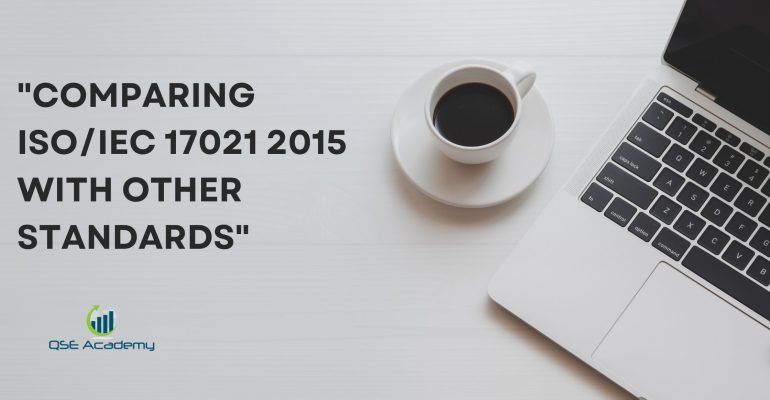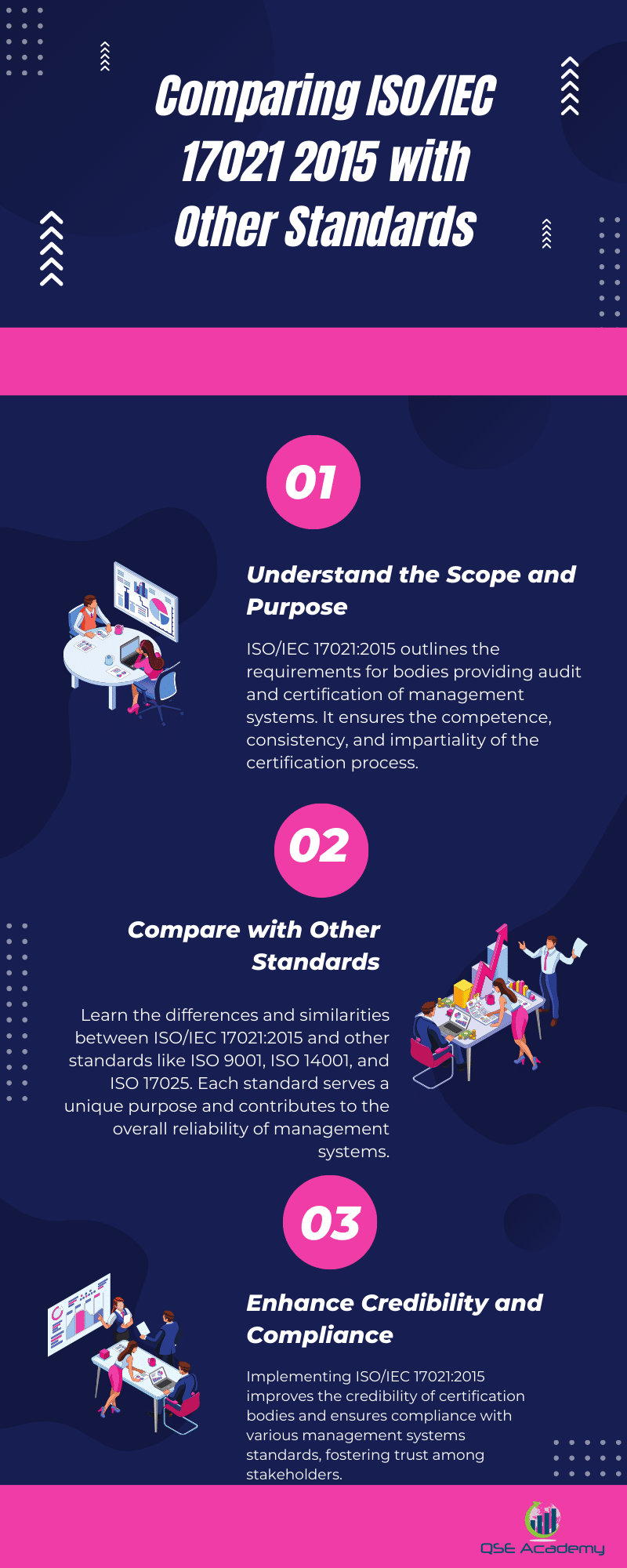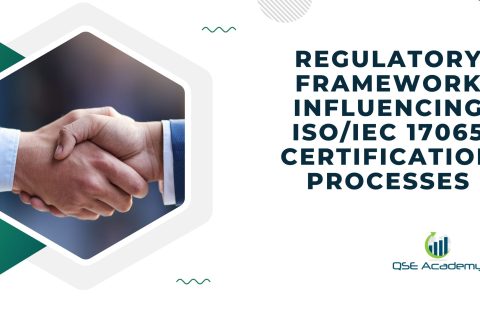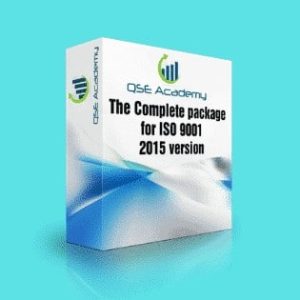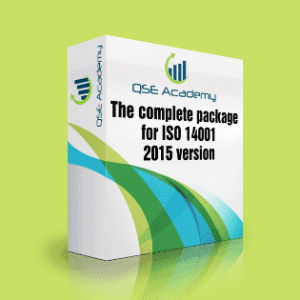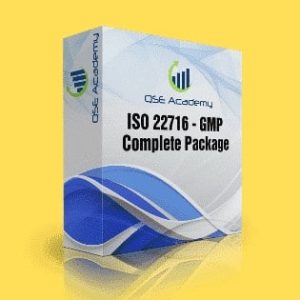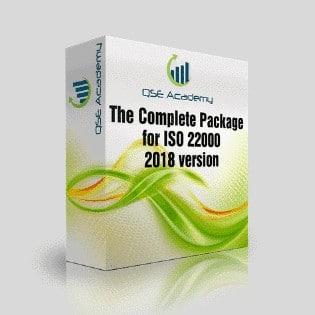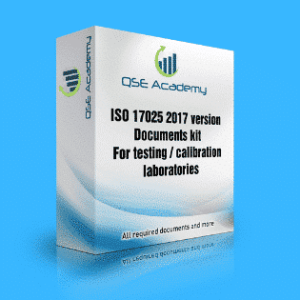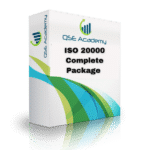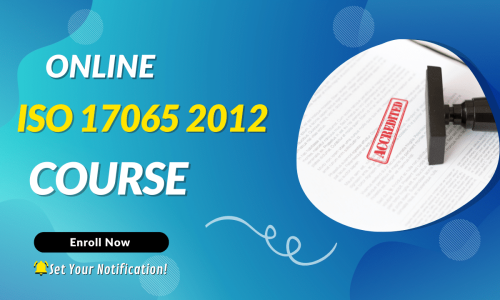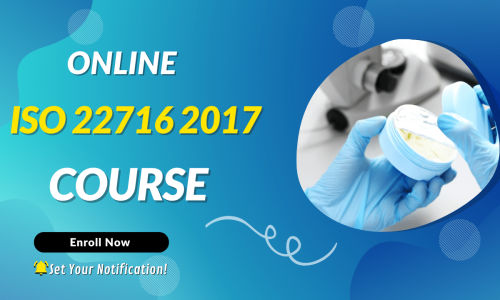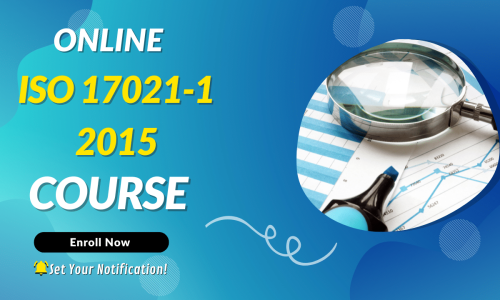Comparing ISO/IEC 17021 2015 with Other Standards
Navigating the intricate world of standards can feel like deciphering an ancient code. ISO/IEC 17021:2015 is a beacon for certification bodies, but how does it stack up against others? It establishes requirements for those who audit and certify management systems, fostering credibility and trust in certification processes. In the following article, we’ll embark on a comprehensive journey, contrasting ISO/IEC 17021:2015 with industry juggernauts such as ISO/IEC 9001 and ISO/IEC 14001, dissecting similarities and unearthing nuanced differences, offering real-world implications, and illuminating the unique position of ISO/IEC 17021:2015 among its peers.
Introduction
ISO/IEC 17021:2015 stands as the recognized international standard for certifying bodies engaged in the audit and certification of management systems. It outlines the criteria these bodies must adhere to, ensuring they possess the necessary competence and impartiality to conduct their assessments effectively. ISO/IEC 17021:2015 applies to any organization that seeks to verify the conformity of management systems concerning various fields, encompassing quality, environmental, and other forms of management systems.
Understanding and comparing this standard with other related ISO/IEC standards, such as ISO/IEC17025 (competence of testing and calibration laboratories) or ISO/IEC17020 (requirements for the operation of various types of bodies performing inspection), is advantageous. Such analyses can reveal the unique requirements, scopes, and principles that apply to different conformity assessment bodies and their services.
The importance of ISO/IEC 17021:2015 lies in its establishment of a uniform benchmark of performance and reliability. It fosters trust and ensures quality among stakeholders and consumers who depend on the certification of management systems to validate compliance with international standards.
By the end of this article, readers will gain a comprehensive understanding of ISO/IEC 17021:2015 and its critical role within the global framework of conformity assessments, as well as its application in specific sectors. This insight will prove invaluable to organizations aiming to achieve or provide certifications, accreditation bodies, or anyone interested in the field of quality and management systems.
Understanding ISO/IEC 17021:2015
ISO/IEC17021:2015 provides a global benchmark for organizations that conduct the certification of management systems. It sets forth principles and requirements for the competence, consistency, and impartiality of an audit and certification process of management systems such as quality management systems (QMS) and environmental management systems (EMS).
Key Objectives and Principles:
- Ensure the effectiveness of audit and certification processes.
- Promote confidence and reliability in certifications issued.
- Establish the competence of certification bodies through a standard set of requirements.
Core Requirements:
- Impartiality: Certification bodies must act unbiased and avoid conflicts of interest.
- Competence: Auditors should have the knowledge and skills relevant to the specific management system being certified.
- Responsibility: The certification body must be accountable for its decisions.
- Openness: Transparency in the certification process is crucial for trust.
- Confidentiality: Sensitive information must be safeguarded.
Implementation and Impact: Certification bodies implement ISO/IEC 17021:2015 by integrating its standards into their functional procedures, ensuring they maintain the required level of expertise and impartiality. The impact of adopting ISO/IEC 17021:2016 into their processes is significant; it not only adds credibility to the certifications they offer but also assures businesses and stakeholders of the certified management system’s reliability and compliance with international standards.
With its comprehensive criteria, ISO/IEC 17021:2015 aligns the certification of management systems with a global perspective, enhancing the uniformity and recognition of certificates across different countries and sectors.
Comparison with ISO/IEC 9001
ISO/IEC 17021 and ISO/IEC 9001 are both international standards that serve specific purposes in the management systems sector. While ISO/IEC 9001 focuses on setting the criteria for quality management systems, ISO/IEC 17021 provides requirements for bodies providing audit and certification of management systems. Both are pivotal in fostering confidence and improvement in organizational practices.
ISO/IEC 9001 outlines requirements to implement a quality management system within an organization. It serves a broad range of fields, promoting the adoption of a process approach, customer focus, and continual improvement. Central to ISO/IEC 9001 is its applicability to any organization regardless of type, size, or product/service provided.
In contrast, ISO/IEC 17021:2015 sets the stage for certification bodies. It details requirements for competence, consistency, and impartiality in the audit and certification process of management systems. Here, the emphasis is on the certification body’s ability to provide services that are competent, transparent, and reliable.
While ISO/IEC 9001 is implemented by organizations seeking to enhance their inherent quality processes, ISO/IEC 17021 is embraced by those entities offering third-party evaluations of such systems. The impact of ISO/IEC 9001 is often internal, boosting organizational efficiency and customer satisfaction. ISO/IEC 17021, however, has an external influence, as it underpins the trust and integrity of the certification services received by these organizations.
Although different in scopes and objectives, the two standards intersect on the principles of impartiality and the quest for ongoing improvement. This fundamental alignment ensures a cohesive approach to quality from system implementation to system certification, reinforcing the overall integrity of management systems globally.
Comparison with ISO/IEC 14001
ISO/IEC 14001 and ISO/IEC17021:2015 serve distinct purposes but are interconnected in the realm of management systems. ISO/IEC 14001 focuses on outlining the criteria for an environmental management system (EMS) that an organization can use to enhance its environmental performance. Its objective is to provide a framework for organizations to protect the environment, respond to changing environmental conditions, and integrate environmental considerations into their business management.
On the other hand, ISO/IEC17021:2015 specifies requirements for bodies providing audit and certification of management systems, not just limited to environmental but encompassing various fields such as quality, health and safety, and more. It aims to ensure that these bodies are competent to audit and certify organizations in a consistent and reliable manner.
A key similarity between the two is their emphasis on continual improvement and the Plan-Do-Check-Act (PDCA) cycle. However, while ISO/IEC 14001 is implemented by organizations seeking to manage their environmental responsibilities, ISO/IEC17021:2015 is applied by certification bodies verifying the compliance and performance of these organizations.
In comparing the impact on organizations, ISO/IEC 14001 typically leads to improved environmental performance and compliance with legislation, while ISO/IEC17021:2015 provides confidence to stakeholders that the certificates issued by certification bodies are credible. ISO/IEC17021:2015 certified bodies assess the effectiveness of an organization’s EMS, not the system itself, thereby indirectly influencing the integrity of environmental management in organizations.
The implementation process for ISO/IEC 14001 involves establishing, implementing, maintaining, and continually improving an EMS, while bodies looking to conform to ISO/IEC17021:2015 must demonstrate their ability to competently assess and certify management systems adhering to the relevant ISO/IEC standards.
Comparing the two standards, organizations can perceive ISO/IEC 14001 as a tool for internal system enhancement, whereas ISO/IEC17021:2015 acts as a means of external validation of a system’s conformance and effectiveness by a third party.
Comparison with ISO/IEC17025
ISO/IEC17025 and ISO/IEC 17021:2015 are two distinct international standards that cater to different aspects of conformity assessment. While ISO/IEC17025 focuses on the competence of testing and calibration laboratories, ISO/IEC 17021:2015 sets out criteria for bodies providing audit and certification of management systems. Understanding the core requirements and the comparison between them is crucial for organizations to implement the appropriate standards effectively.
Core Requirements
ISO/IEC17025 details requirements for laboratories to demonstrate they operate competently and generate valid results. Key requirements include maintaining a quality management system, ensuring the technical competence of staff, the right environmental conditions, the maintenance and calibration of equipment, and the validity of testing methods.
Conversely, ISO/IEC 17021:2015 emphasizes requirements for the competence of the auditing body, the impartiality of its auditors, and the consistency of its auditing activities. It is about the certification body’s ability to provide a third-party audit of the management systems of an organization.
Both standards share the underlying principle of ensuring competent, consistent, and impartial assessment activities in their respective fields. ISO/IEC 17021:2015 requires certification bodies to have a comprehensive management system, much like the quality management systems required by ISO/IEC17025 for laboratories. Additionally, both standards address competence requirements and the necessity for impartiality to maintain credibility.
However, the differences are quite clear regarding their scopes. ISO/IEC17025 is specific to laboratories’ operational competence and technical proficiency, while ISO/IEC 17021:2015 pertains to the certification processes for management systems at large, such as quality, environmental, or other specialized management systems.
Implementation and Impact
Implementing ISO/IEC17025 typically involves establishing and maintaining lab protocols, training personnel, and ensuring the environmental conditions are suitable for accurate measurements and tests. The impact lies in the increased trust in the laboratory’s results and its measurement uncertainties.
Implementing ISO/IEC 17021:2015 requires the development of a system for managing certification activities, training auditors, and ensuring ongoing oversight to maintain impartiality. This will enhance the trustworthiness and recognition of an organization’s certification services.
In conclusion, while both ISO/IEC17025 and ISO/IEC 17021:2015 are designed to bring reliability and trust to their respective areas, they serve distinct purposes. Laboratories seeking to demonstrate their technical capacity would align with ISO/IEC17025, whereas bodies focusing on certifying organizations’ management systems would adhere to the principles of ISO/IEC 17021:2015.
Comparison with ISO/IEC17020
ISO/IEC17020 and ISO/IEC17021:2015 are both international standards that concern the process of conformity assessment and certification. Despite their shared focus on quality and competence in these processes, they are applied to different aspects of certification.
ISO/IEC17020 pertains to the requirements for the operation of various types of bodies performing inspection. The scope of ISO/IEC17020 is narrower, focusing on inspection bodies and their ability to provide impartial and competent inspection services. Inspection refers to the examination of a product design, product, process, or installation and determination of its conformity with specific requirements or, based on professional judgment, with general requirements.
On the other hand, ISO/IEC17021:2015 provides requirements for bodies certifying management systems. This standard is broader and involves a different set of activities; it concerns the certification of systems such as quality or environmental management systems within organizations.
When we compare the requirements, both standards share common themes – such as the need for impartiality, consistency, and competence. However, they diverge in the specifics. ISO/IEC17021:2015 sets out more detailed criteria for the competence of audit teams, the management of audit programs, and the certification process itself.
In terms of implementation, both standards require a systematic approach and a commitment from the organization’s top management. Implementing ISO/IEC17020 involves establishing rigorous procedures for inspection activities, while ISO/IEC17021:2015 demands a broader understanding of various management systems and the ability to assess them effectively.
The impact of these standards on organizations also varies. Compliance with ISO/IEC17020 often leads to enhancements in inspection reliability and customer trust in the inspected products or services. In contrast, ISO/IEC17021:2015 can transform the entire operational processes of an organization by embedding quality into its management systems. This can result in improved efficiency, better risk management, and an increased competitive advantage.
In summary, while there are similarities between ISO/IEC17020 and ISO/IEC17021:2015 in terms of demanding high competence and impartiality, their applications diverge significantly. Each standard serves a unique function in the certification landscape with distinct impacts on the organizations that implement them.
Comparison with ISO/IEC17065
ISO/IEC17021 and ISO/IEC17065 are both standards that provide frameworks for the operation of various types of conformity assessment bodies, yet they are applicable to different kinds of organizations. ISO/IEC17021:2015 specifically lays out requirements for bodies certifying management systems, such as quality or environmental management systems. In contrast, ISO/IEC17065 applies to bodies certifying products, processes, and services.
Core Requirements
ISO/IEC17065 focuses on product safety and performance, ensuring that certification processes are consistent and produce reliable results. ISO/IEC17021:2015, however, emphasizes the effectiveness of management system implementation within the certified organization. It covers the competence of auditors, confidentiality, and the impartiality of the certification process.
Comparison of Scopes and Objectives
While both standards aim to instill confidence through accredited certification, ISO/IEC17065 assessors must possess specific product knowledge and an understanding of the relevant regulations. In contrast, ISO/IEC17021:2015 assessors are required to have a grasp of organizational processes and the capability to evaluate management system effectiveness.
Implementation and Impact
Organizations seeking accreditation under ISO/IEC17065 must align their product certification activities with the standard’s guidelines, which can enhance market access and consumer trust. The implementation of ISO/IEC17021:2015 impacts the certification body’s approach towards evaluating management systems, influencing the perception of an organization’s quality and environmental stewardship among stakeholders.
In conclusion, while ISO/IEC17021:2015 pertains to system-based certifications, ISO/IEC17065 encompasses product-related certifications. The choice between these standards depends on the type of certification services offered by the conformity assessment body and the nature of its clientele. Both play pivotal roles in different scenarios but with the common goal of underpinning conformity assessments with credibility and reliability.
Key Differences and Similarities Across Standards
ISO/IEC17021:2015 provides a framework for bodies that perform audit and certification of management systems to ensure competence, consistency, and impartiality. It shares common themes with other international standards, such as the commitment to quality management systems, maintenance of confidentiality, and the importance of technical competence and impartiality. These principles are fundamental in providing trustworthy and recognized certifications across various fields of application, including environmental management systems, anti-bribery, asset management, and business continuity.
A distinctive feature of ISO/IEC17021:2015 is its exclusive focus on management system certification bodies. Unlike ISO/IEC17025, which relates to the competence of testing and calibration laboratories, or ISO/IEC17020, which concerns the requirements for the operation of various types of bodies performing inspection, ISO/IEC17021:2015 zeroes in on the requirements for bodies providing audit and certification of management systems themselves.
The implementation of ISO/IEC17021:2015 alongside other standards can be streamlined through integrated management systems. Best practices involve mapping out the similarities for common procedures, thereby reducing duplication of effort. Meanwhile, attention must be paid to specific requirements unique to each standard to ensure full compliance.
In summary, ISO/IEC17021:2015 shares key commonalities with other international standards, particularly the fundamental focus on quality, competence, and impartiality. Its unique aspects lie in its specific application to bodies auditing and certifying management systems, which necessitates a specialized approach for effective implementation.
(Side note: Due to the word limit constraint, more specific examples and thorough comparison across other standards were not detailed in this summary. For a comprehensive analysis, individual evaluations of contrasting standards are recommended.
Benefits of ISO/IEC 17021:2015 in the Context of Other Standards
ISO/IEC 17021:2011 provides a framework for organizations that perform the audit and certification of management systems, outlining the requirements needed to ensure impartiality, competence, and consistent operation. The benefits of ISO/IEC 17021:2011 are amplified when it is considered in the context of other standards due to its comprehensive approach that harmonizes well with a wide range of management systems standards.
Enhanced Credibility
Adopting ISO/IEC 17021:2011 aids certification bodies in gaining enhanced credibility. The standard prescribes rigorous criteria which certification bodies must meet to be recognized as competent and impartial, thereby bolstering stakeholder confidence in certifications awarded.
Improved Compliance
When certification bodies conform to ISO/IEC 17021:2011, they inherently establish a foundation that facilitates compliance with a multitude of management systems standards. The integrated approach can lead to a seamless alignment with standards like quality management systems (ISO/IEC 9001) and environmental management systems (ISO/IEC 14001), among others.
Operational Efficiency
The efficiency of certification processes is markedly improved with the adoption of ISO/IEC 17021:2011. Certification bodies that implement this standard can optimize their practices synergistically with other standards, making the entire process more streamlined and effectively reducing overlap and redundancy.
| ISO/IEC 17021:2011 | Benefit | Applicability to Other Standards |
| Credibility | Boosts trustworthiness | Across numerous management standards |
| Compliance | Simplifies adherence | Multiple standards alignment |
| Efficiency | Reduces time and effort | Streamlined certification activities |
Certification bodies utilizing ISO/IEC 17021:2011 in conjunction with other standards ultimately find that it supports the competence of testing and the impartiality required for rigorous conformity assessment. This alignment translates to trusted certifications that stakeholders can rely on for assuring technical competence in various fields.
Conclusion
Understanding the nuances of ISO/IEC 17021 and its comparison to other standards is not merely an academic exercise but a practical imperative for organizations vested in the certification of management systems. By juxtaposing ISO/IEC 17021 with its counterparts, businesses can discover synergies and divergences that translate directly into enhanced compliance and operational efficiency. It is through this process that informed decision-making can be fostered, ensuring that not only are the benchmarks of quality and technical competence met but also, that these standards coalesce to form robust and comprehensive management systems.
The journey of quality management is enduring, with standards such as ISO/IEC17021, pertaining to conformity assessment bodies, playing a central role. Others like ISO/IEC17025 and ISO/IEC17020, which address calibration laboratories and the competence of testing and inspection bodies respectively, complement the ecosystem of credible quality assurance.
As we move forward, it is paramount for organizations to not only commit to individual standards but also to comprehend the broader standards landscape. This holistic awareness will prepare businesses to adapt, evolve, and excel in an ever-changing landscape of international standards.
Organizations should remain ever-vigilant, continually exploring the realms of international standards such as environmental, asset, and anti-bribery management systems among others, to ensure ongoing improvement and maintain a competitive edge.
Looking for More Resources on ISO 17021?
If you found this article helpful, explore our premium resources designed to help you achieve ISO 17021 certification efficiently:
- 📦 Complete Documentation Package for ISO/IEC 17021-1 2015: Get all the essential templates and documents you need for fast, easy implementation.
- 🎓 Online Course on ISO/IEC 17021-1 2015 : Enroll in our comprehensive training to master the key concepts and practical steps toward certification.
- 📋 ISO/IEC 17021-1 2015 Checklist: Download our detailed checklist to ensure you’ve covered every step of the process.
These resources are tailored to meet your needs and ensure a smooth certification journey. Explore them today and get one step closer to success!

